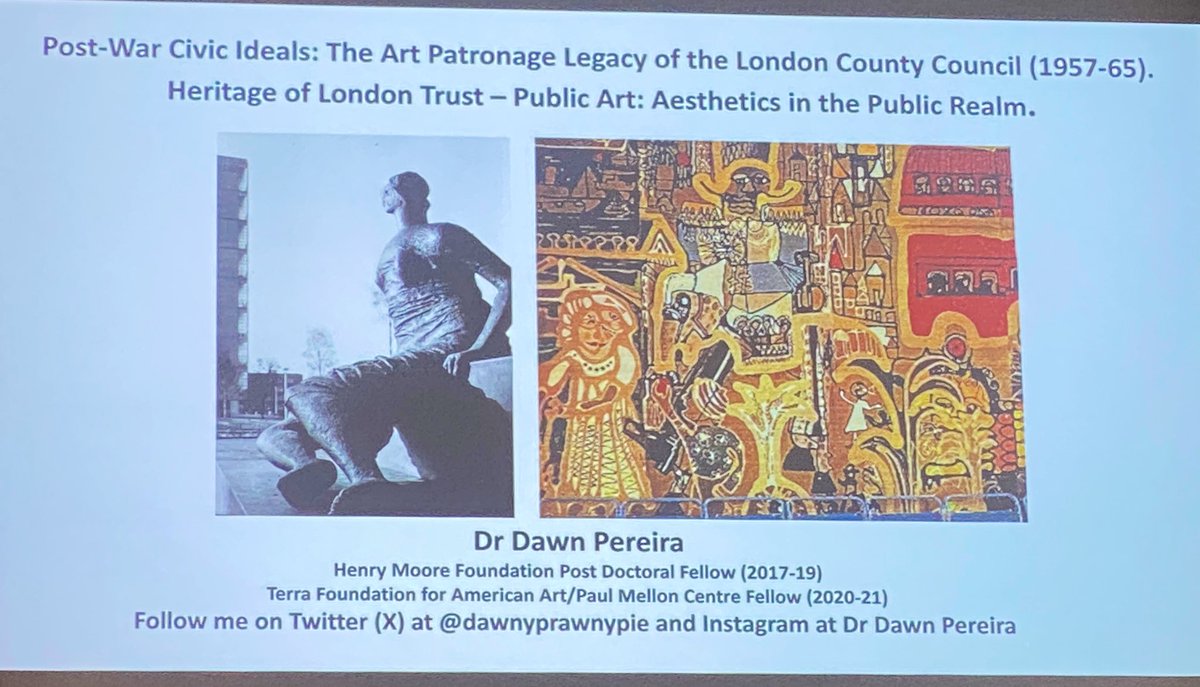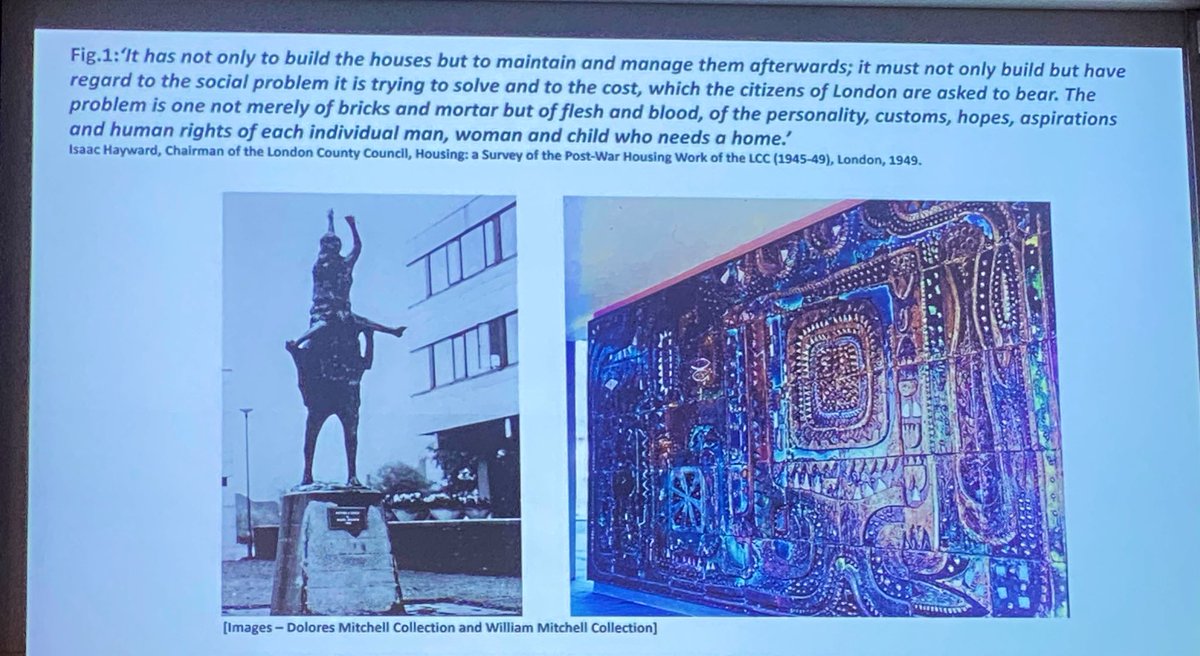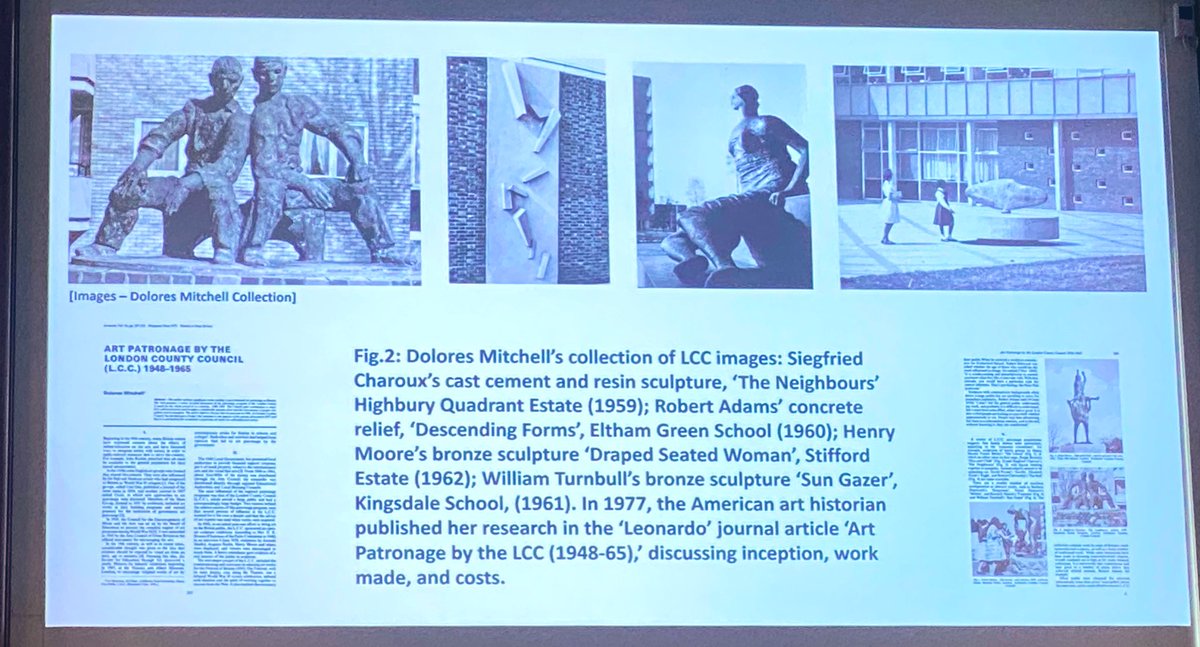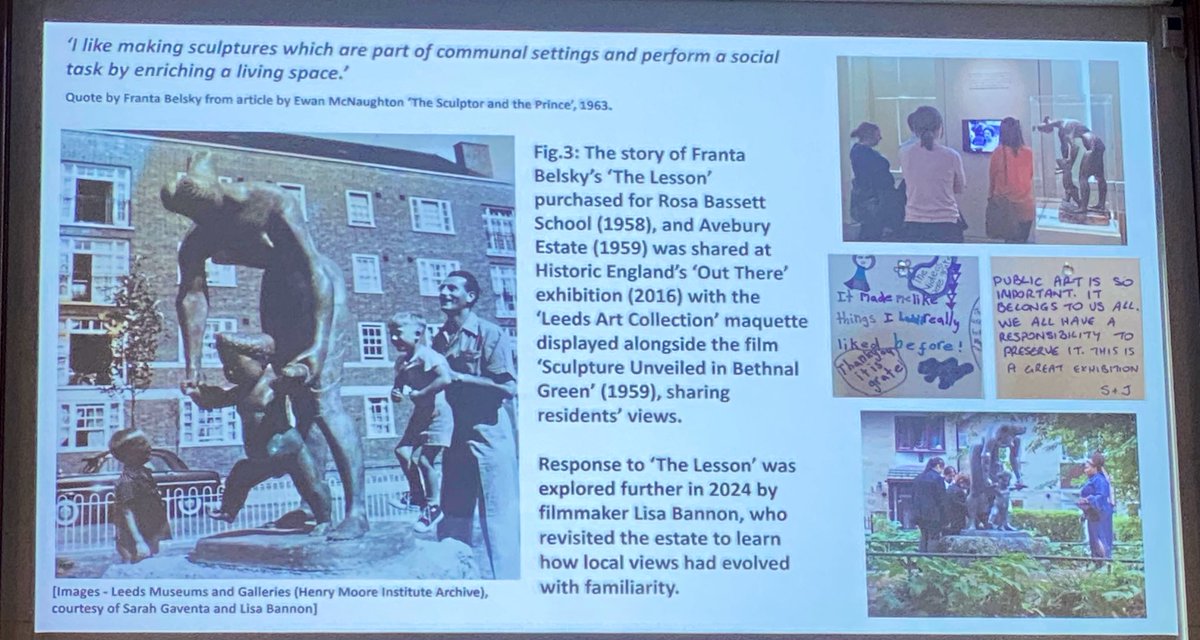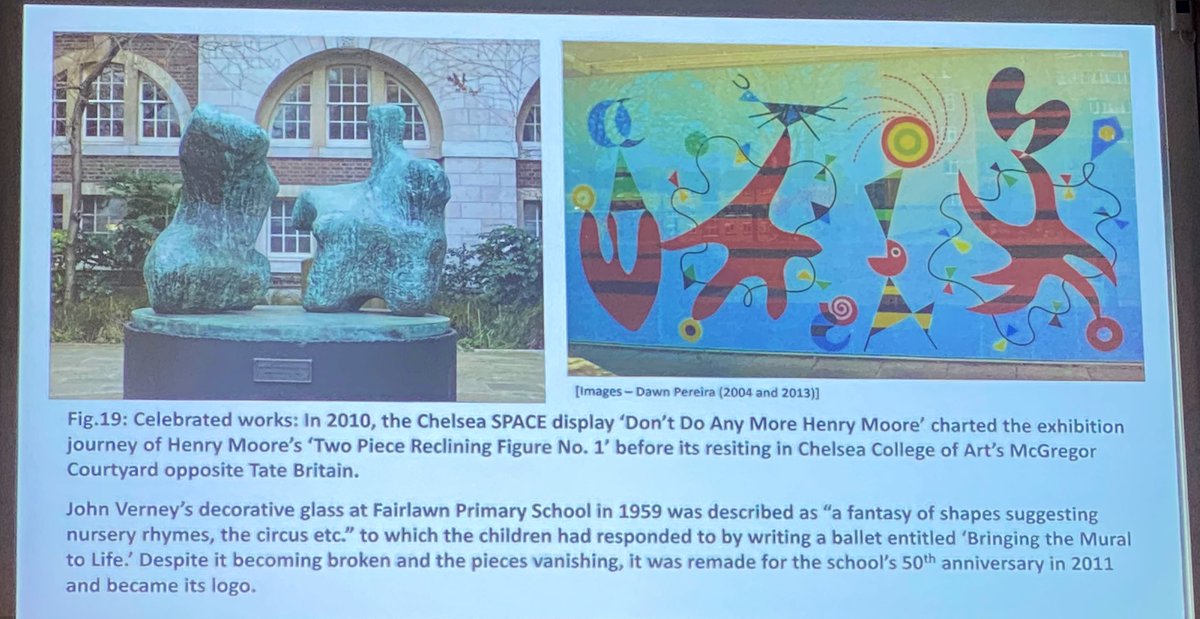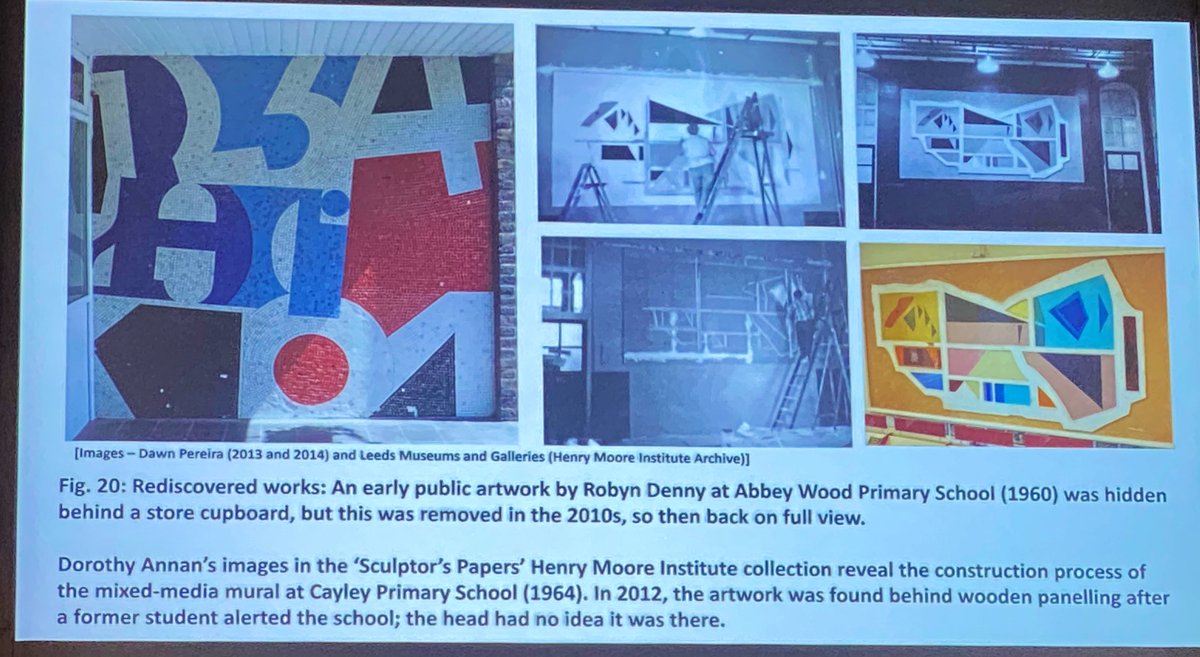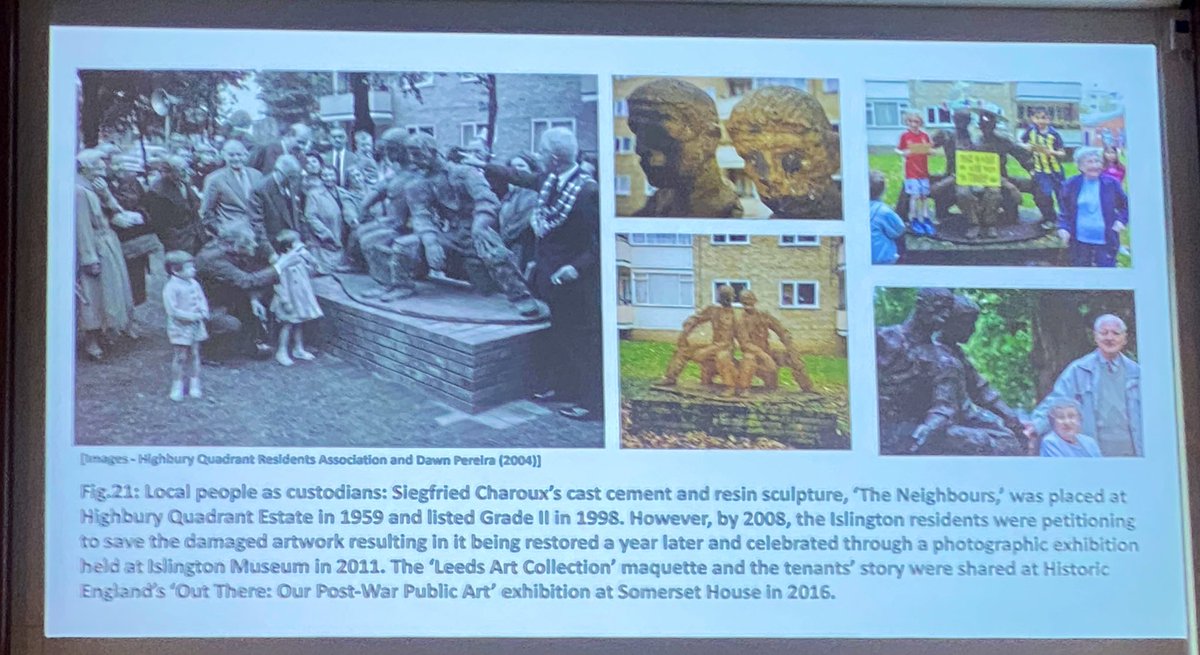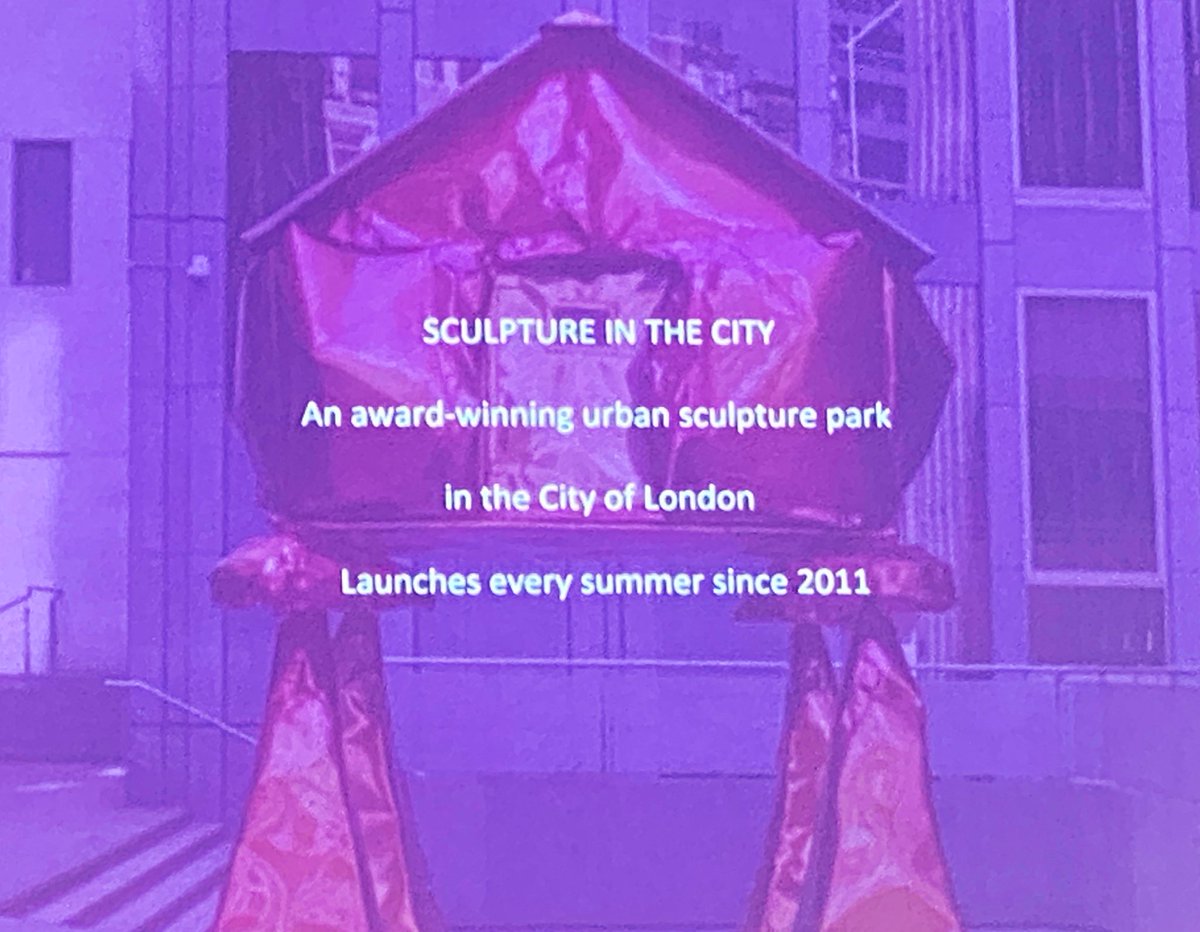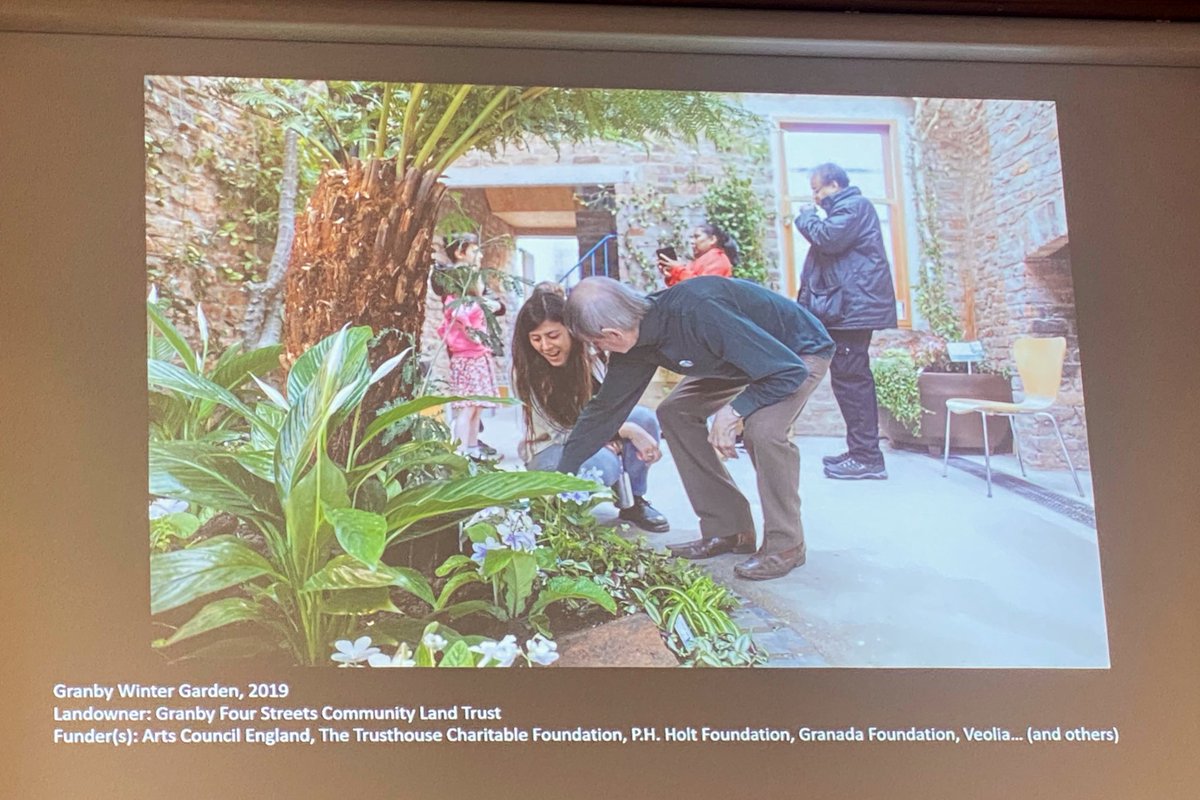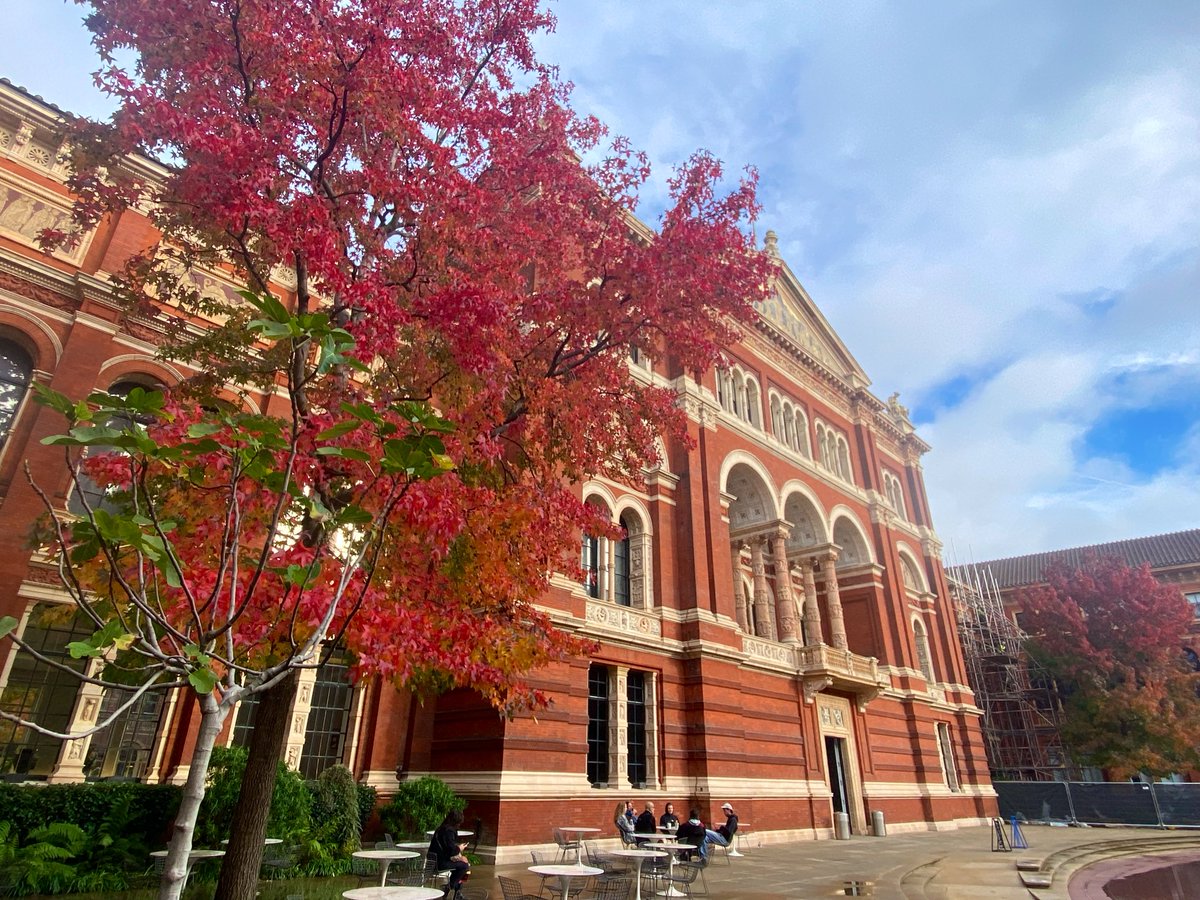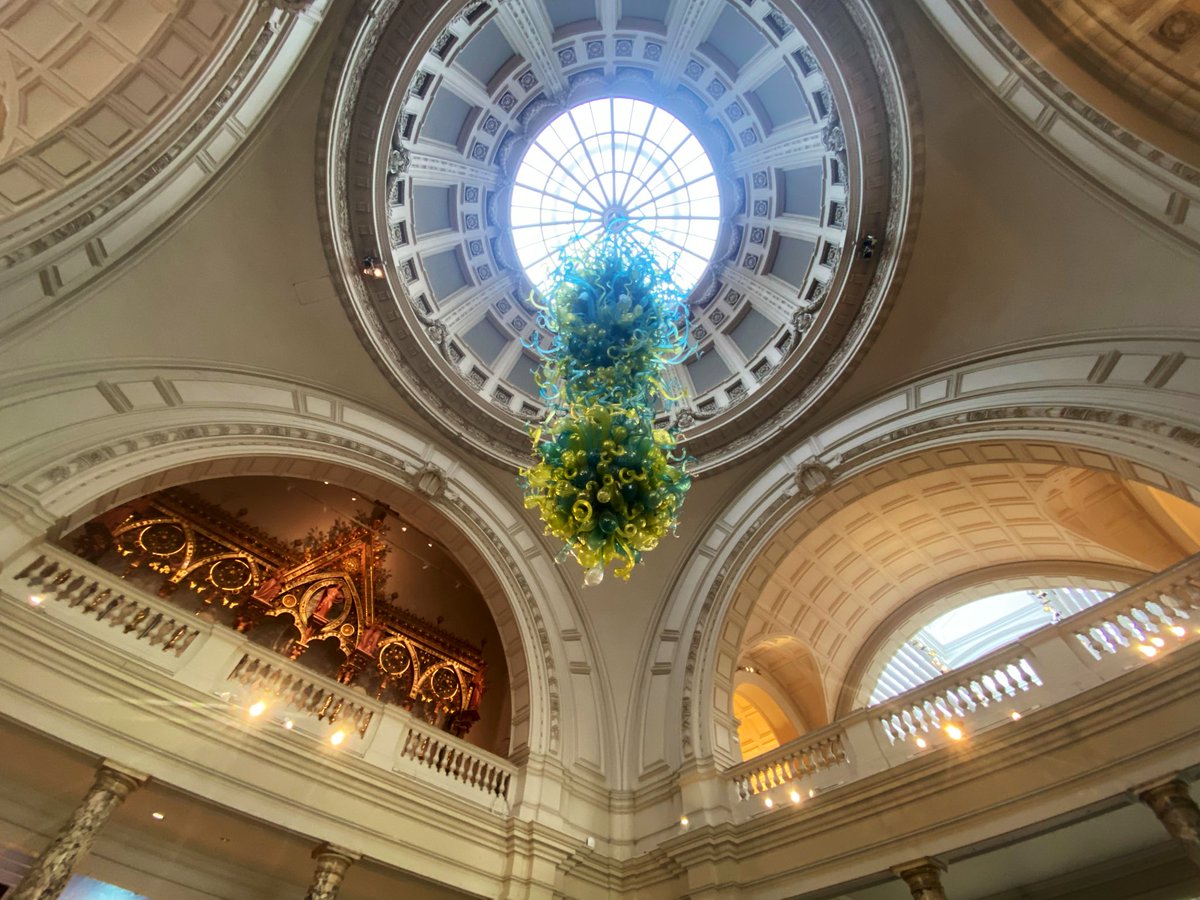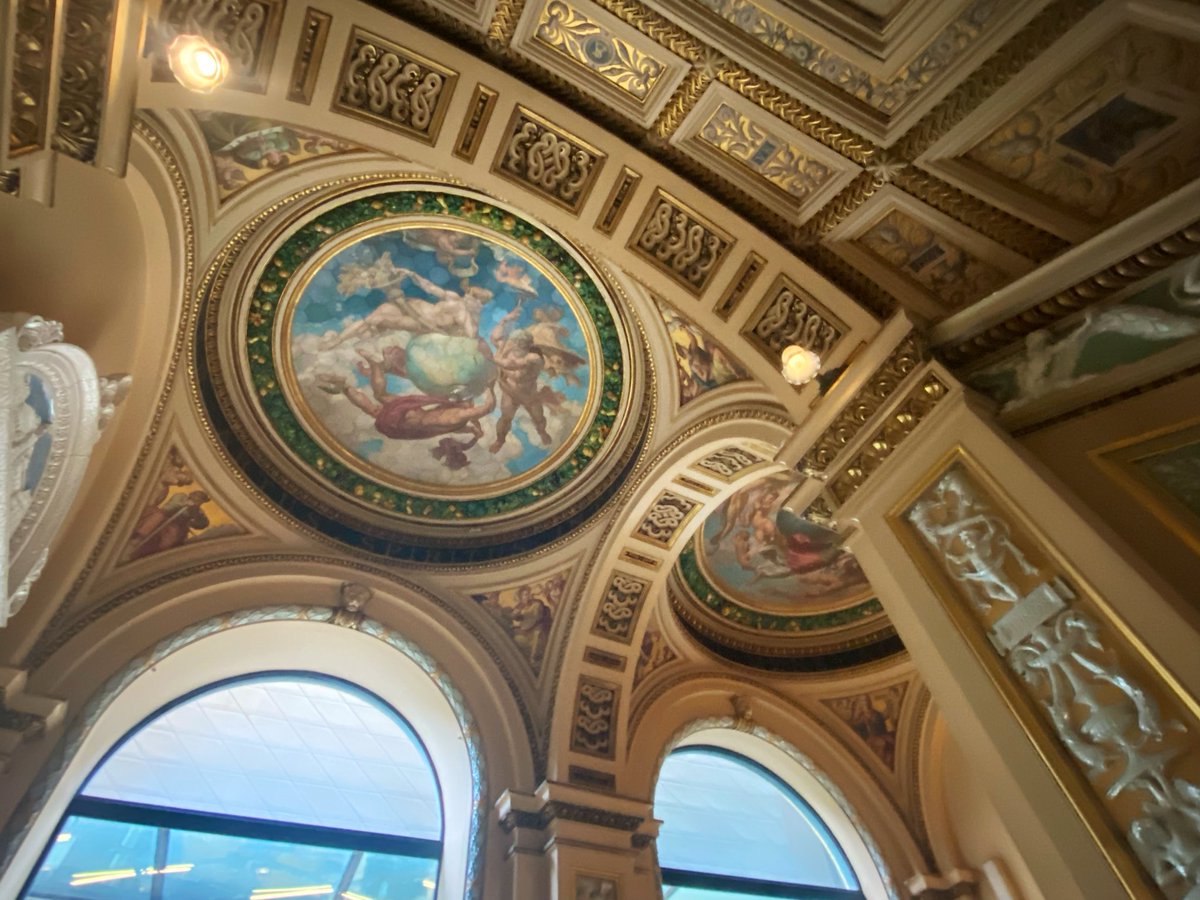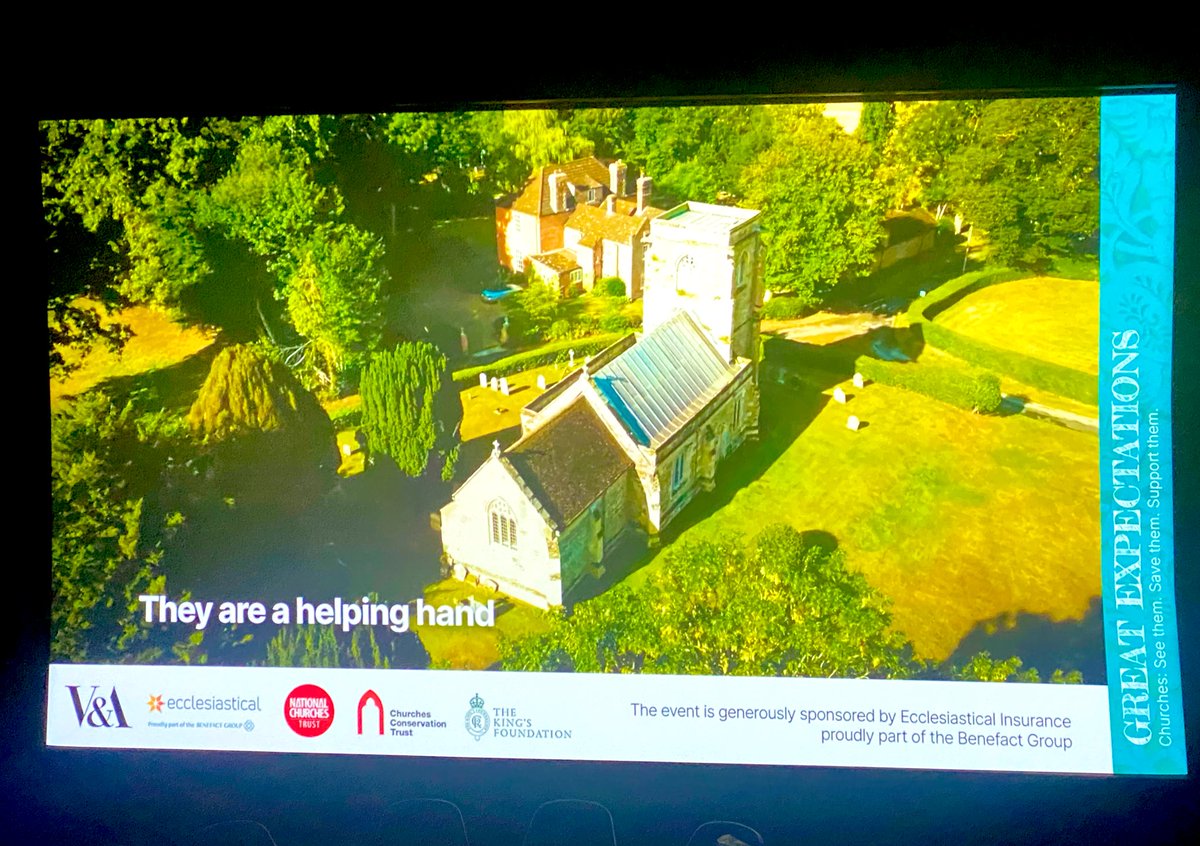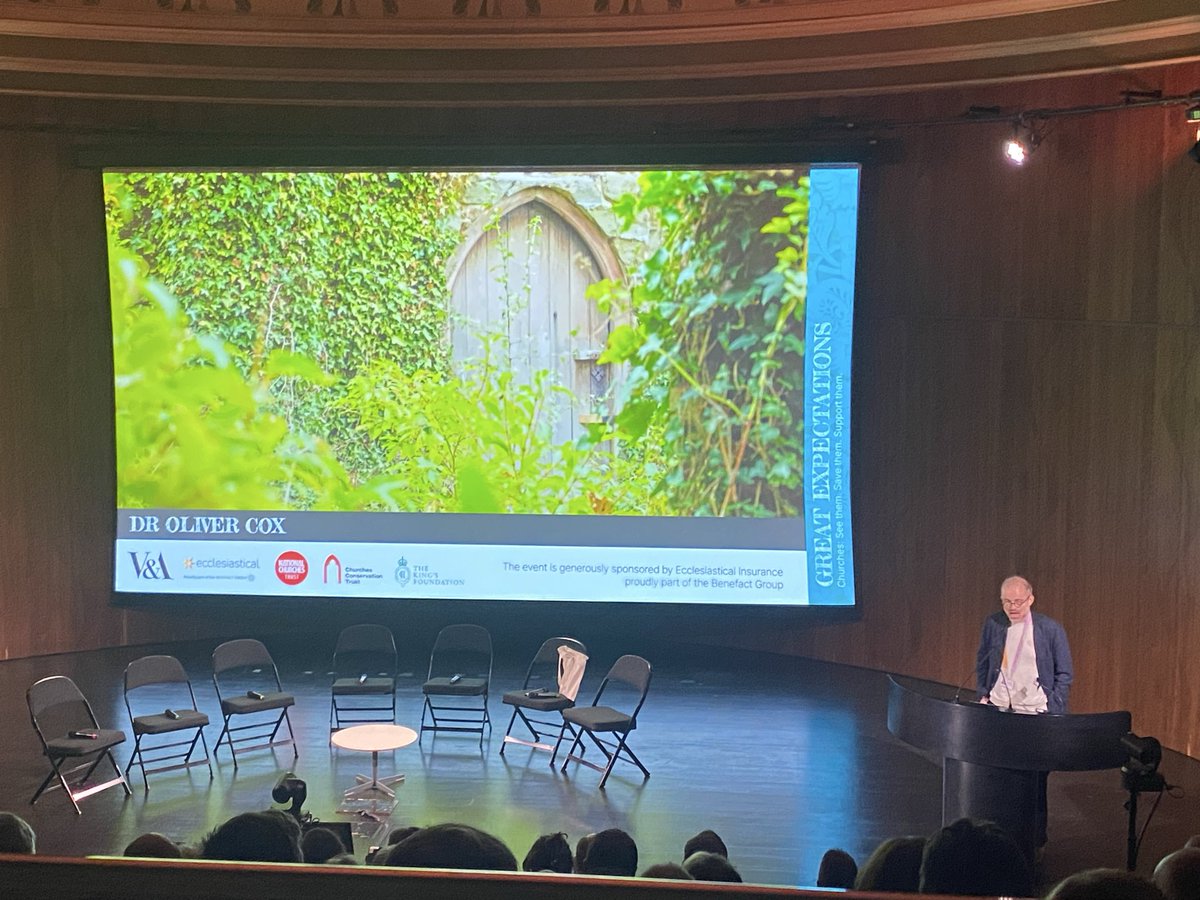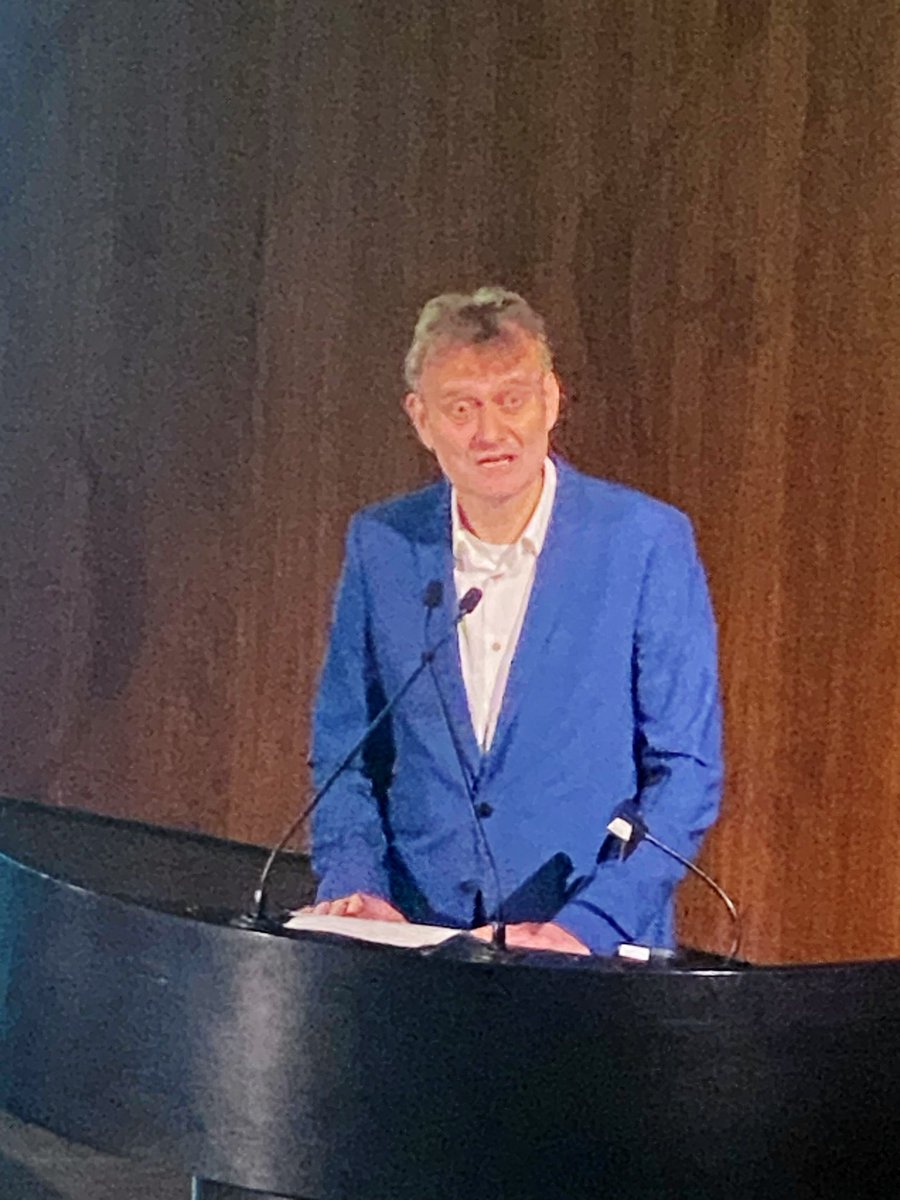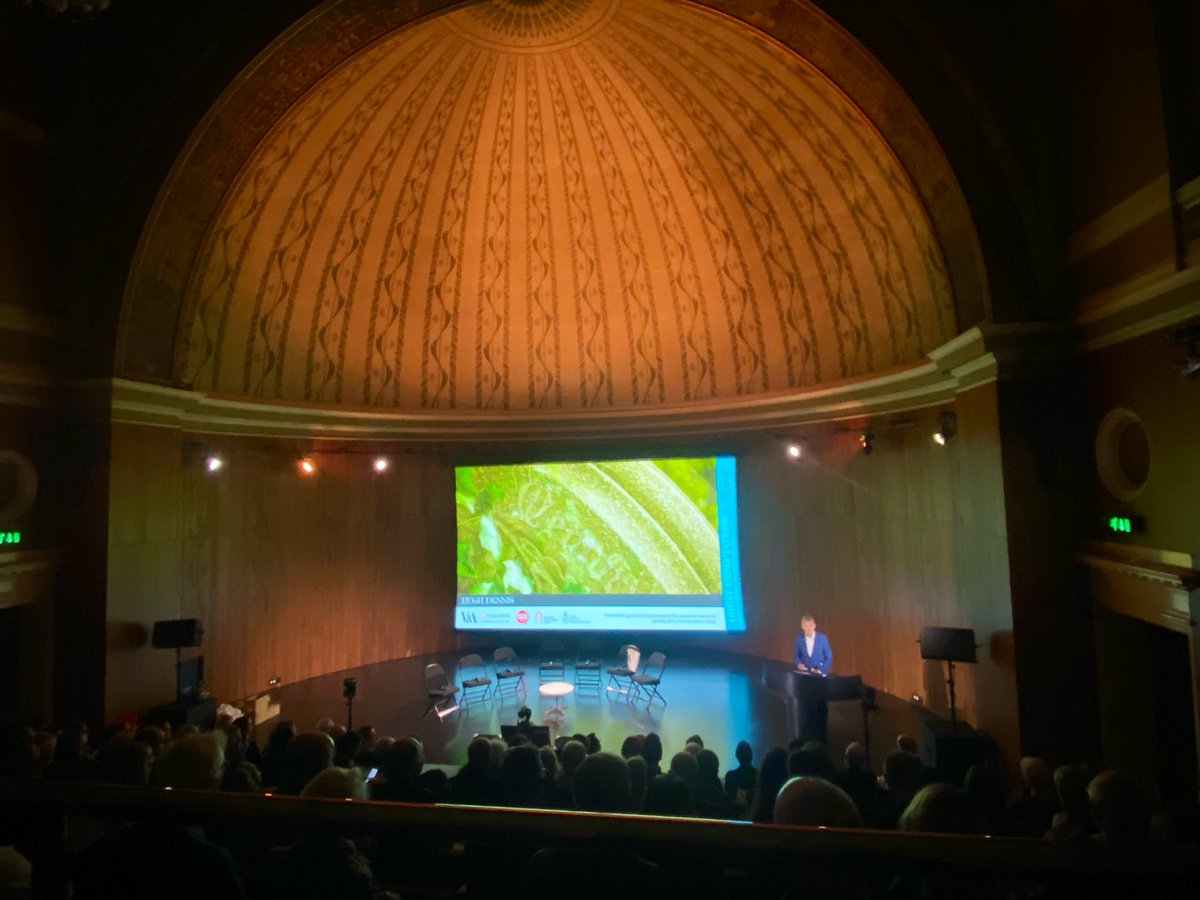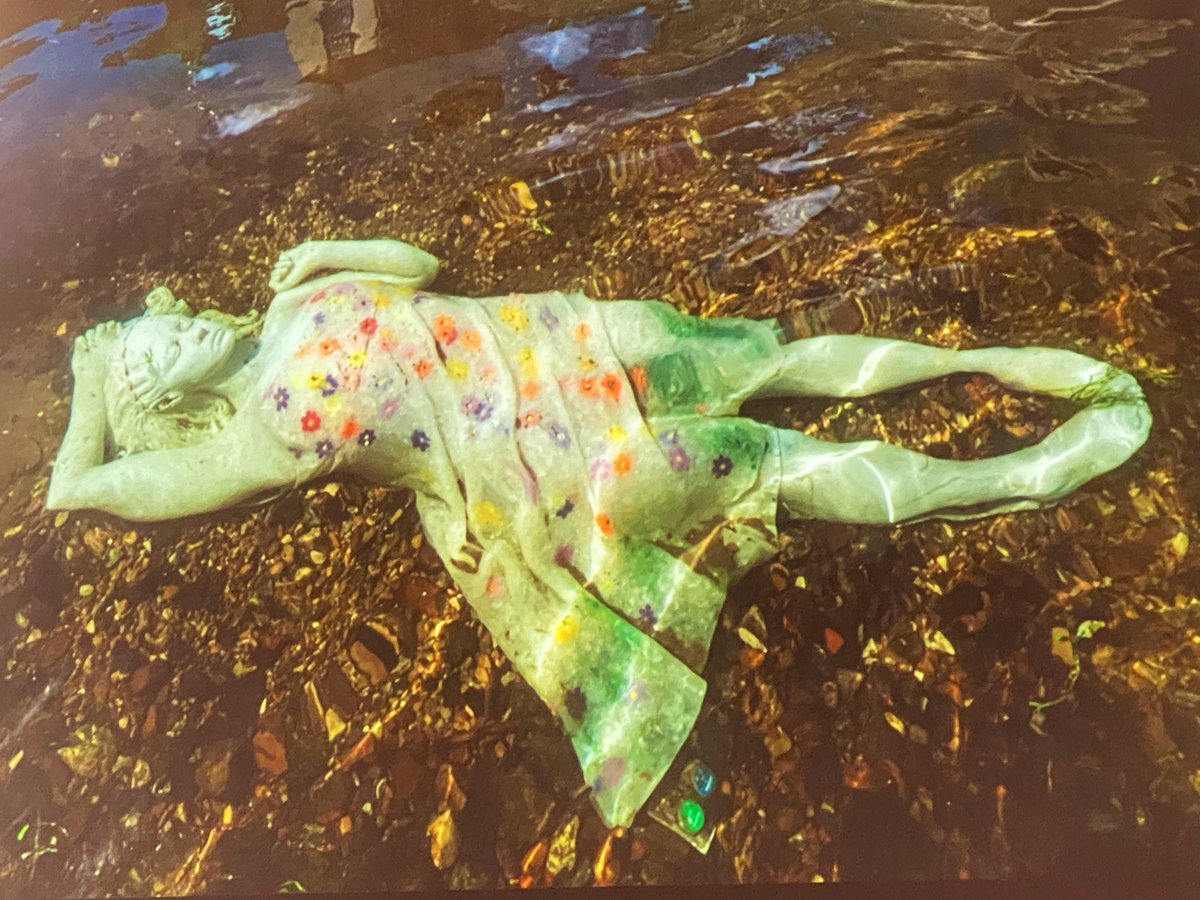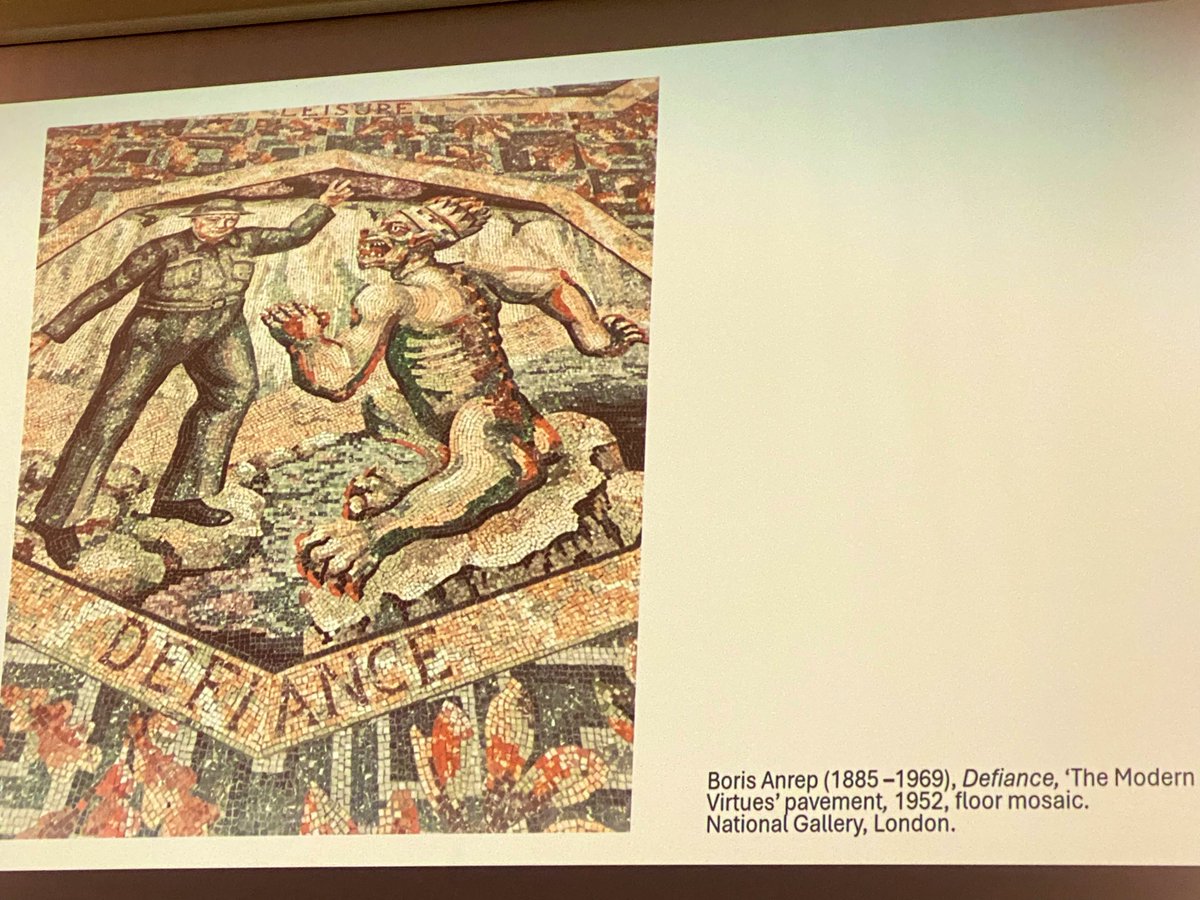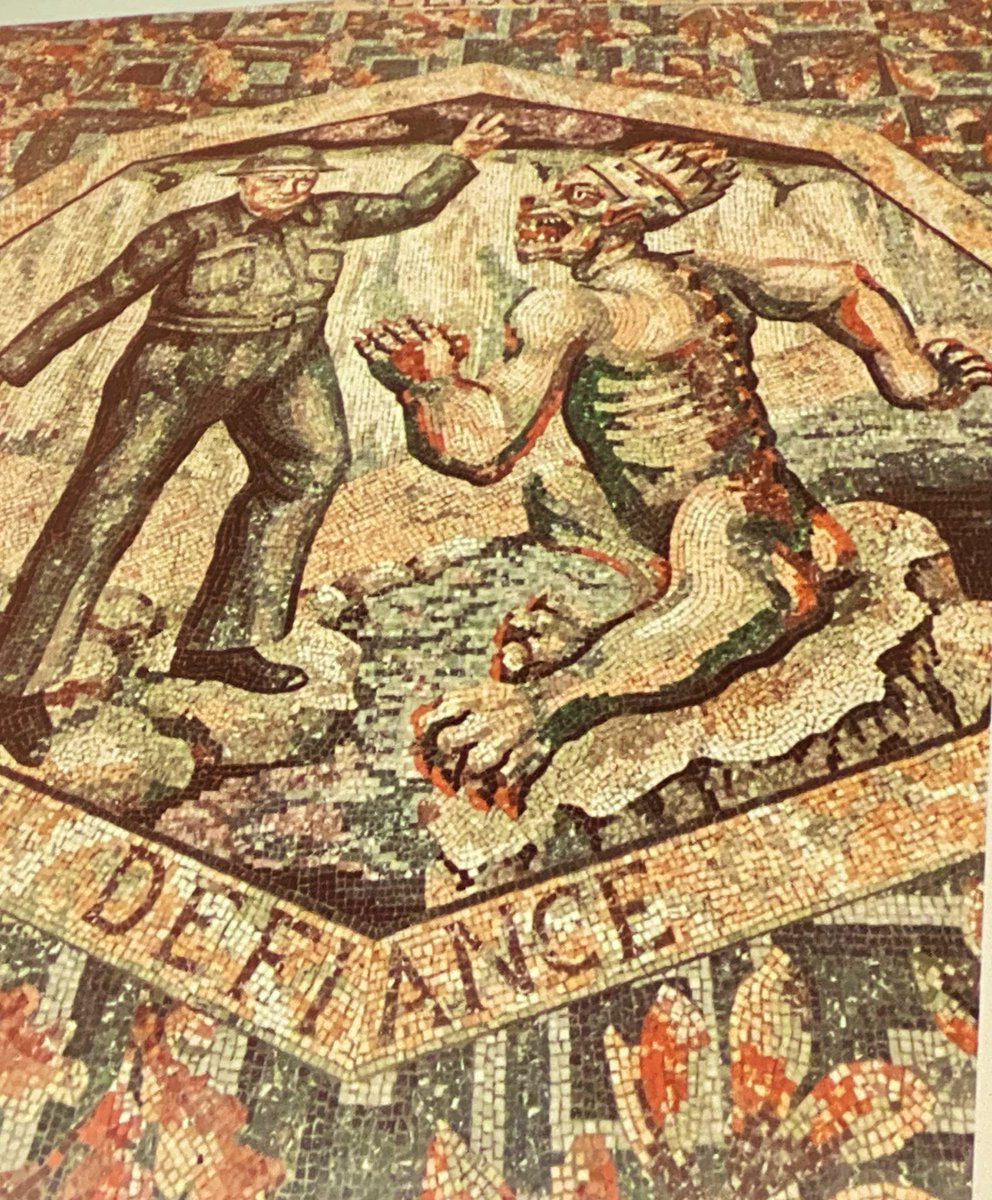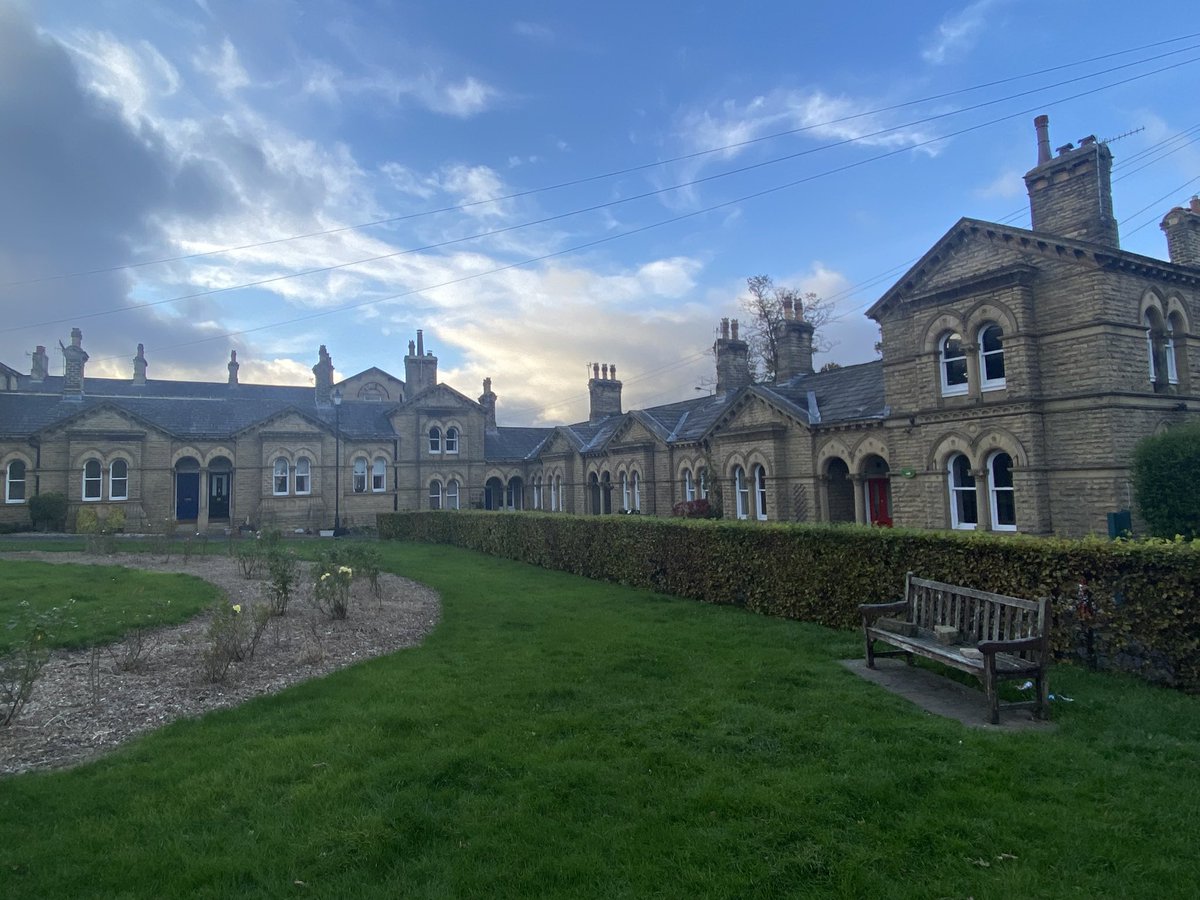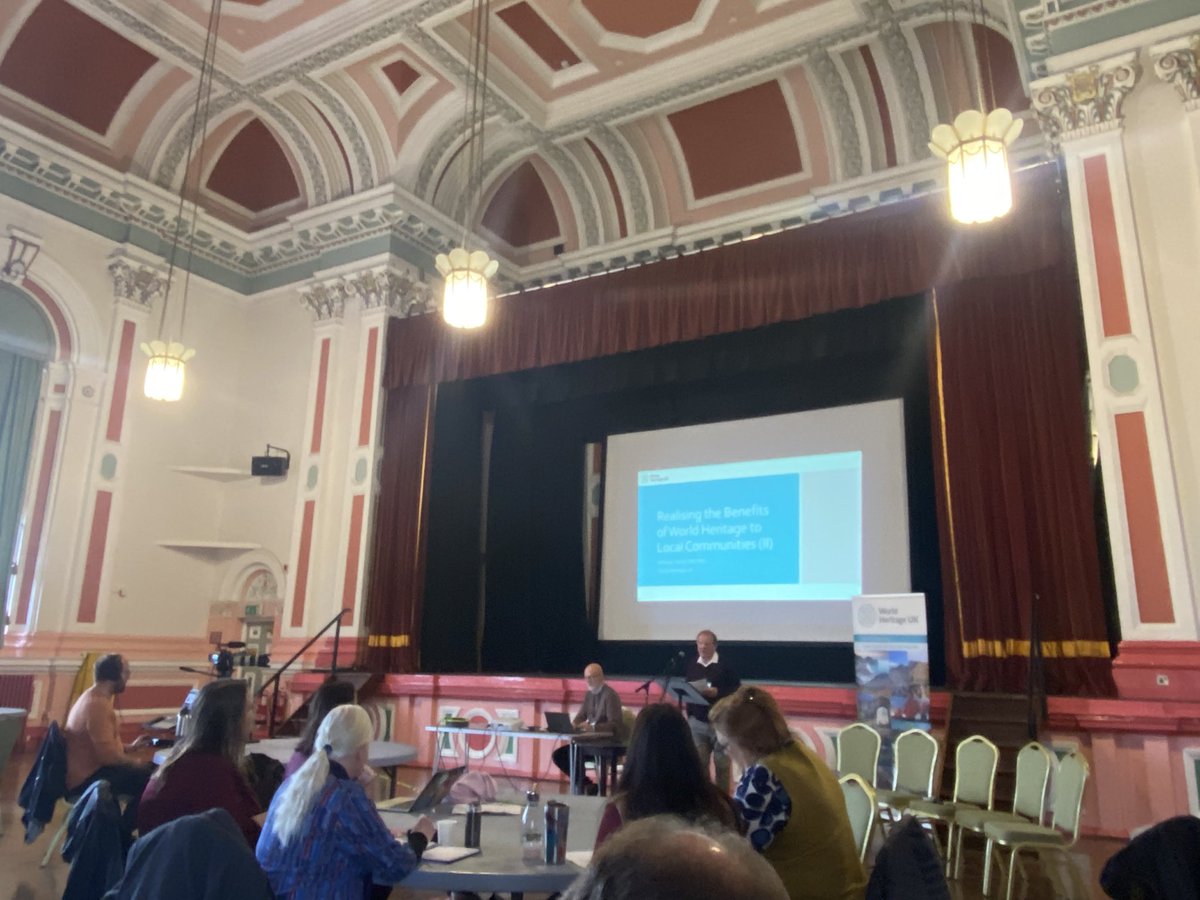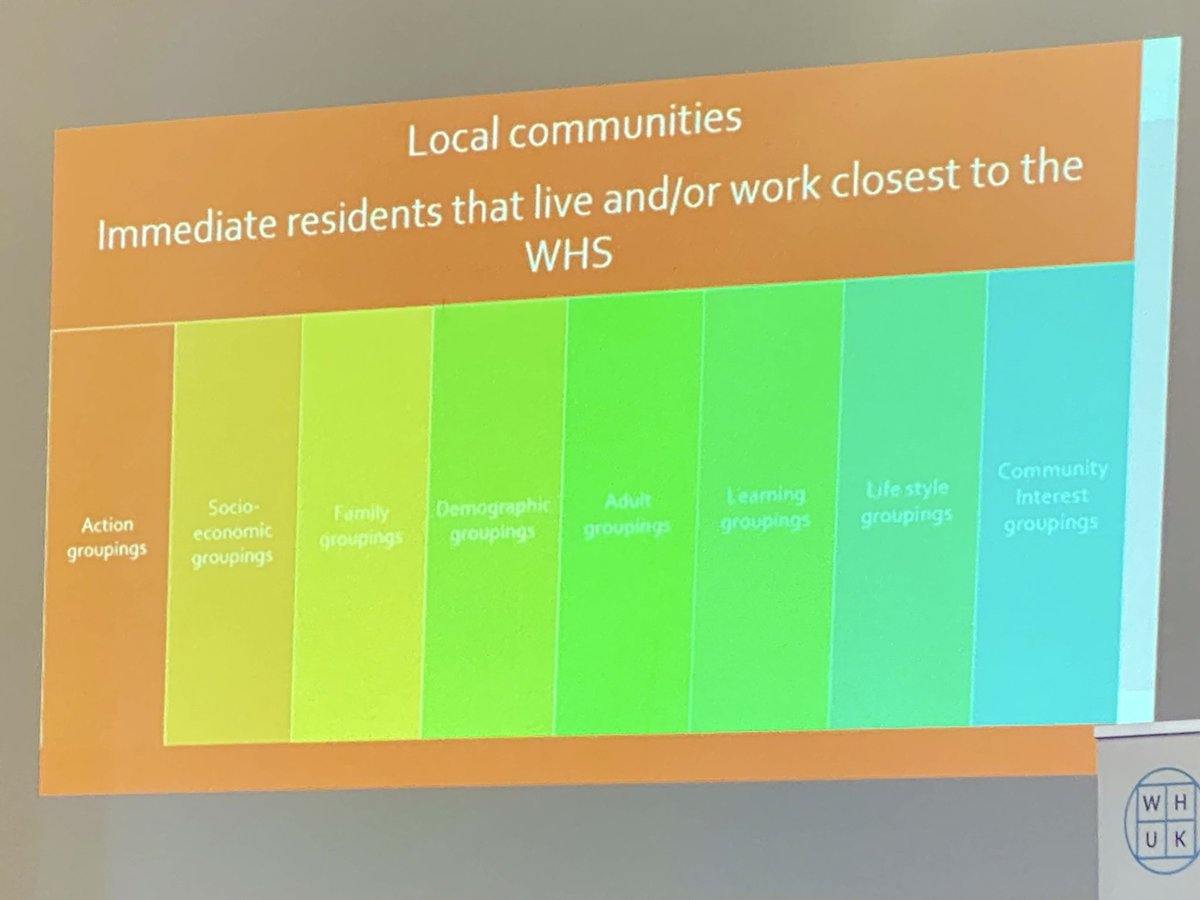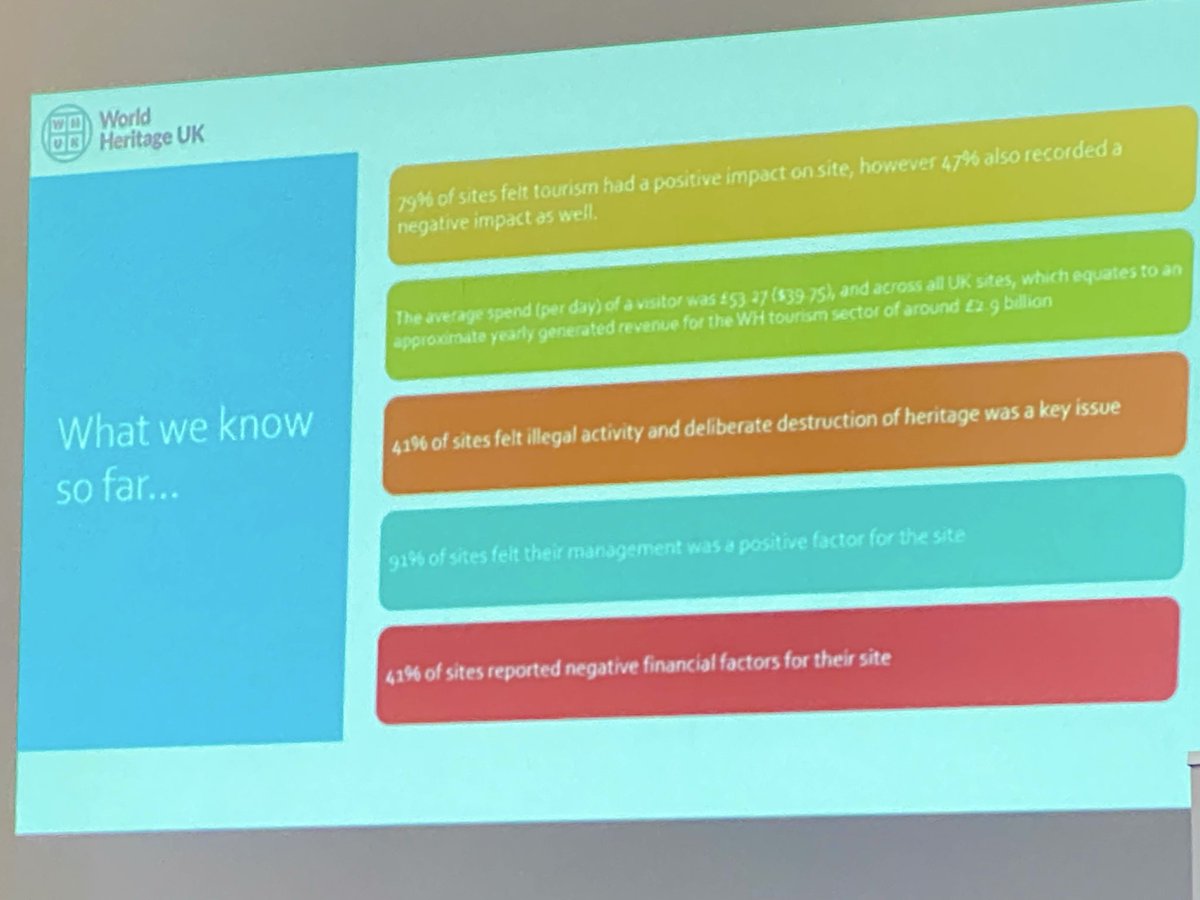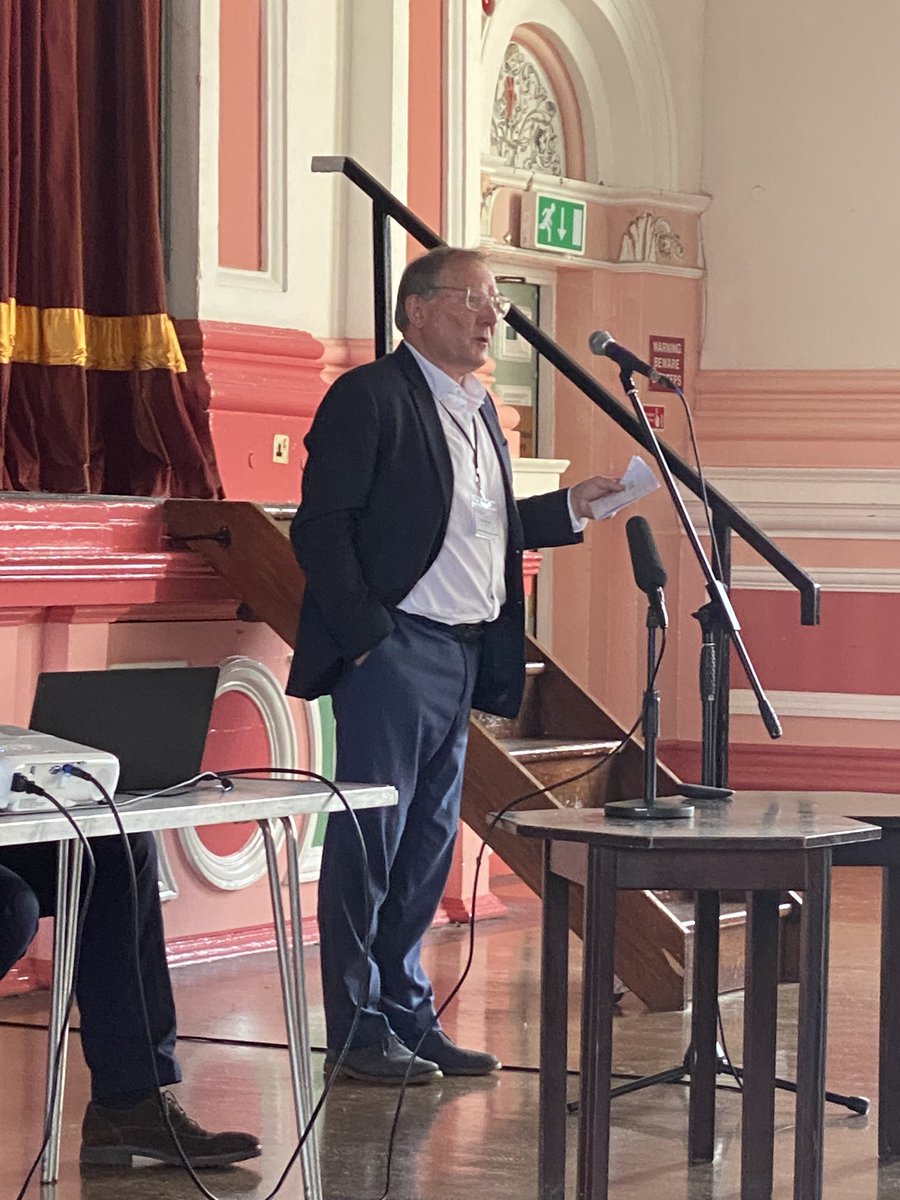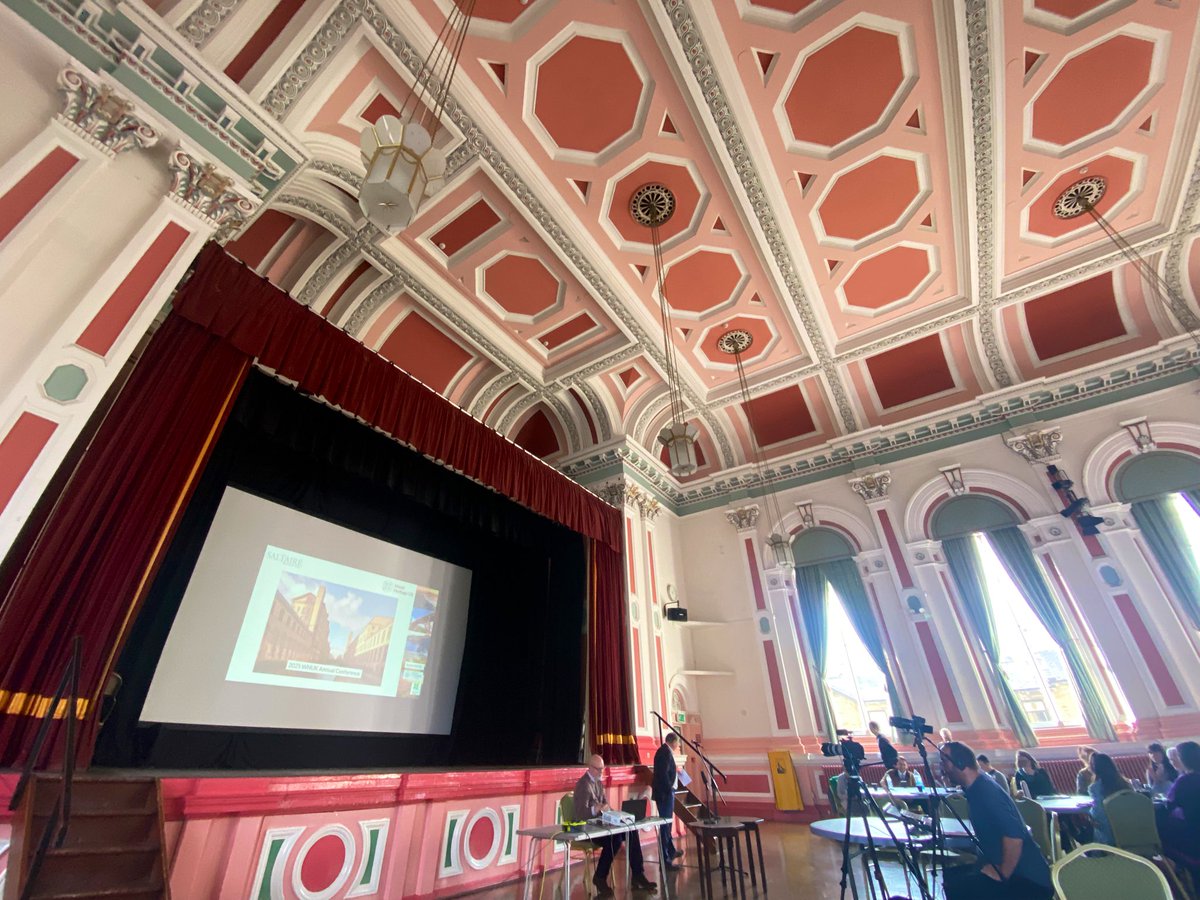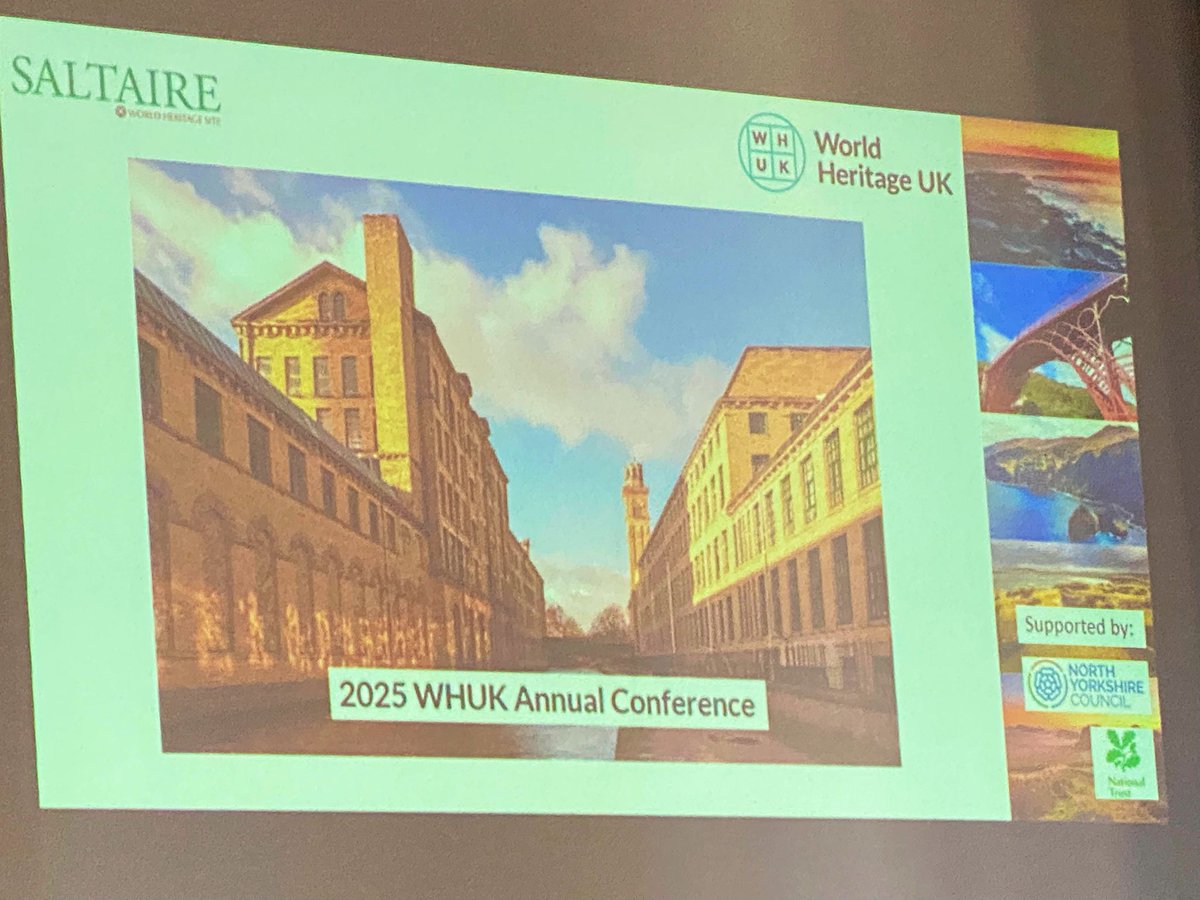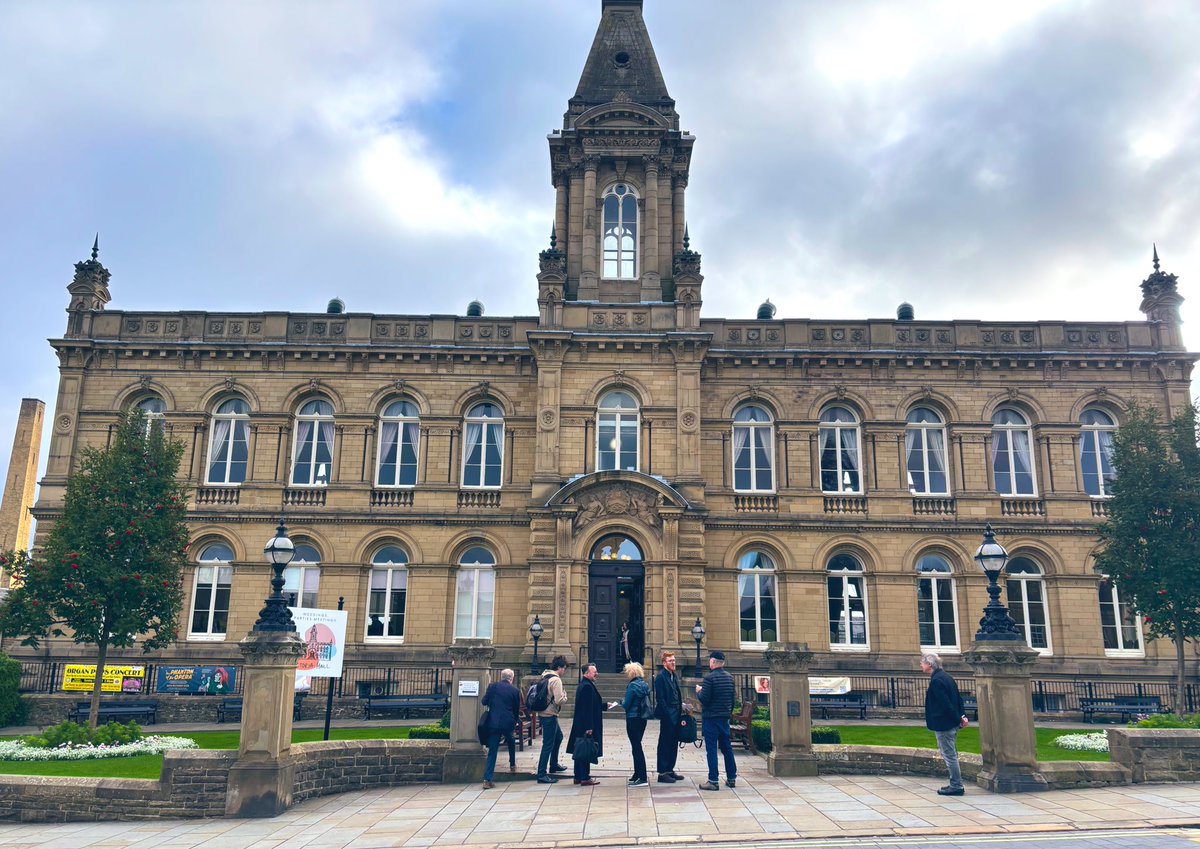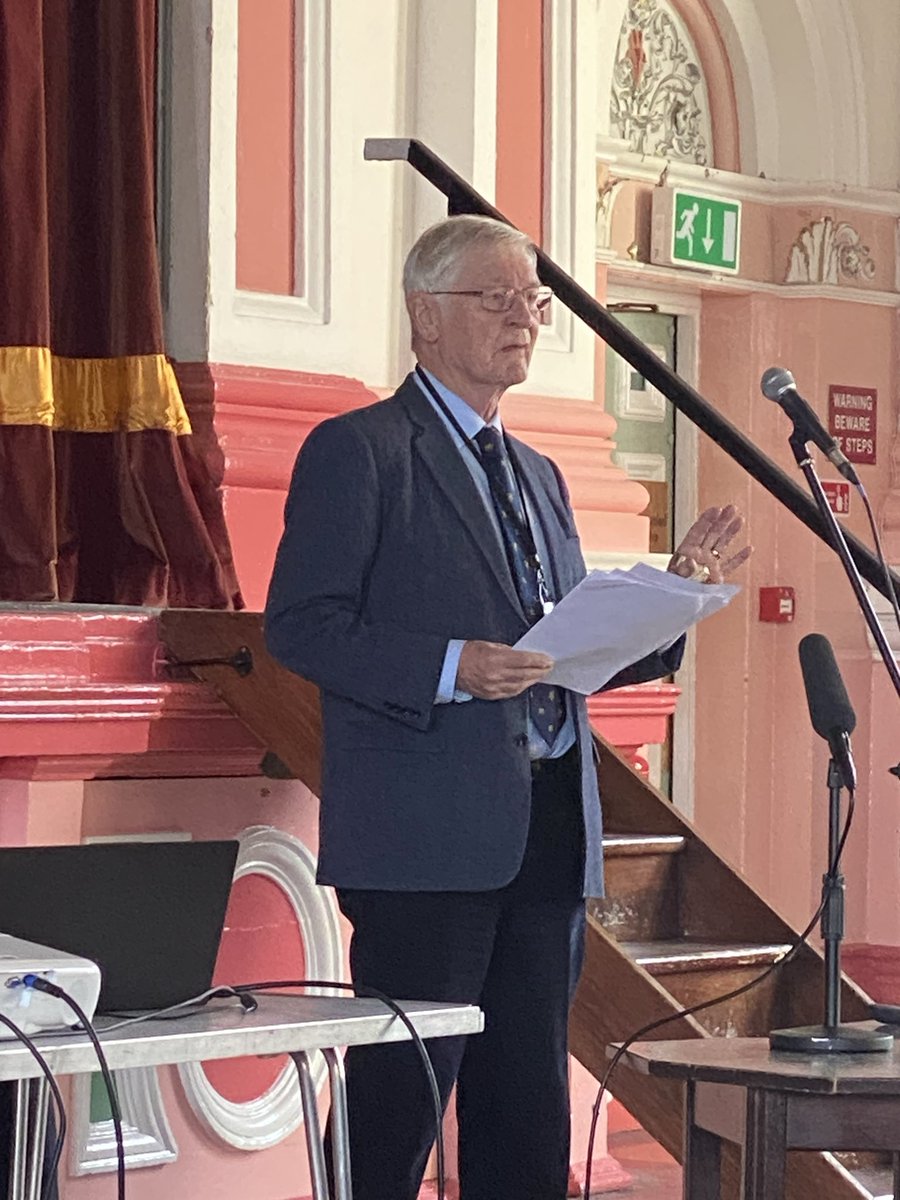Good morning from @Heritage_NGOs member @RIBA for @HOLTofLondon conference on #PublicArt - a full house as Director Dr Nicola Stacey introduces the theme of breaking the barrier between heritage & art. 







Let the art breathe through time, communities engage & respond. Public art is bonding & inspiring but they are vulnerable. 







Some lessons - engage everyone, create art that lifts spirits, encourage freedom to respond, think long term. 

Second speaker this morning @UniofOxford Prof Gaiger, talking about sculpture & the haptic imagination (tactile/the ability to grasp something). Some great examples where art of sculpture is figurative. 







But what about non figurative? We do not see that Serra’s work is about to fall but we need to understand the temporal elements & the possibility of seeing process and an arrested physical moment. Element of forces & stored energy. 





Each of these invite viewer responses. Sculpture v good at eliciting a haptic/tactile response but often this is imaginative not physical. Imagine the placing of an additional slab? Consider tension & dynamic elements of movement. Force of twisting the metal or releasing tension. 





Third speaker this session - Godfrey Worsdale of @HenryMooreFDN - Moore changed the relationship that sculpture can have with the public. 







Moore involved in the iconic Transport for London headquarters. Sculptor as subservient to architect but v public in its delivery. 



Moore really engaged with the imagery of the people sleeping in bomb shelters during the Blitz. Became a public treasure. Moores work became more human (as did much post-war artistic response). He had also become a father. 1% for art scheme in Hertfordshire enabled works 



Outdoor exhibitions & opportunities to work with buildings - public enhancement. Importance of sculptor collaborating with artists/architects. Festival of Britain opportunities. He believed sculpture was a public art. He gave 11000 interviews, articles etc… in life.. 





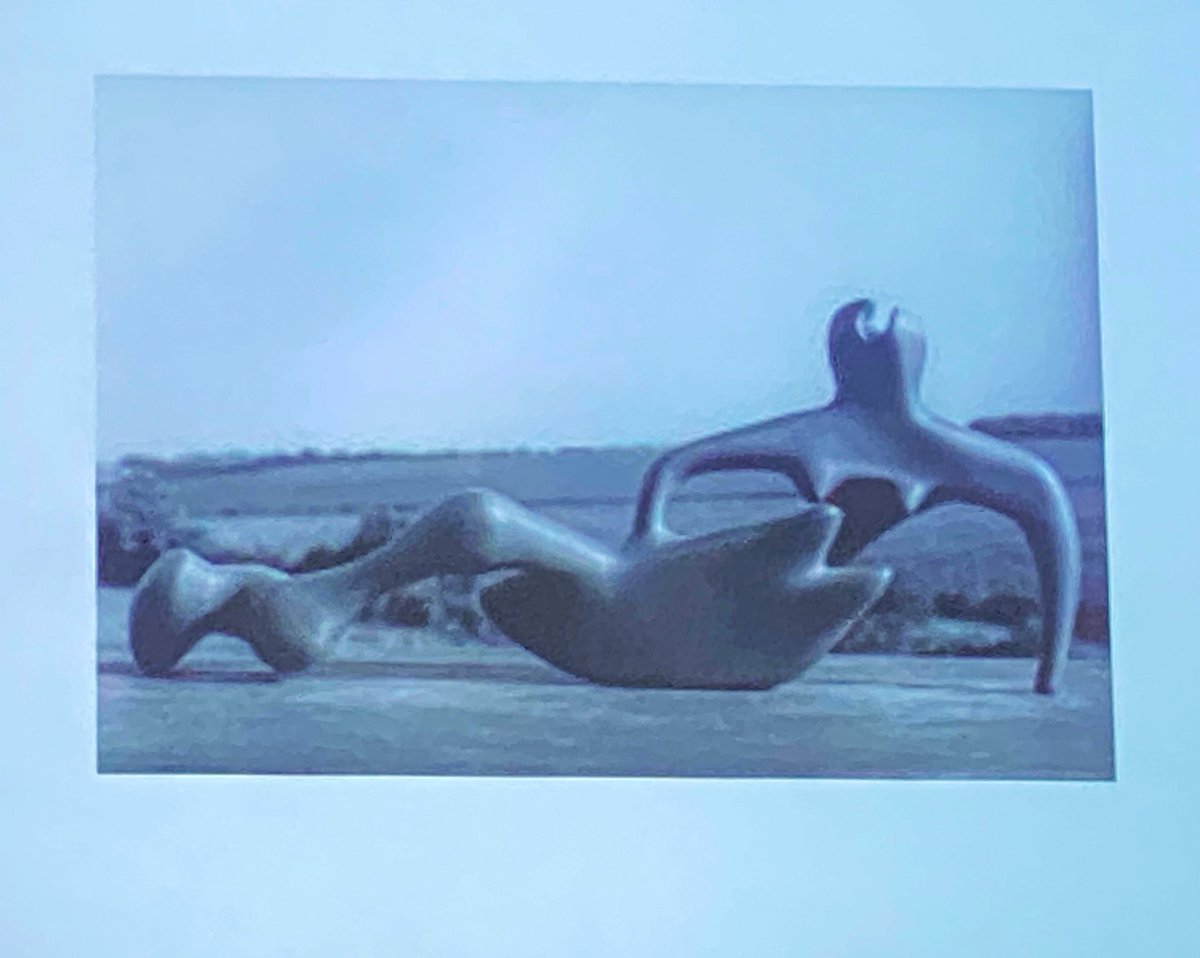

Moore provided some works at cost to ensure engagement in the public realm. Over 50 European cities have his public art. So much also in America. He dominated these commissions. 







He had experienced such phenomenal generosity in his life that he also gave much back, including after death. 

@Dawnyprawnypie 1961 an advisory body was created to advise & engage with commissioning. By 1965 over 70 artworks had been acquired. 





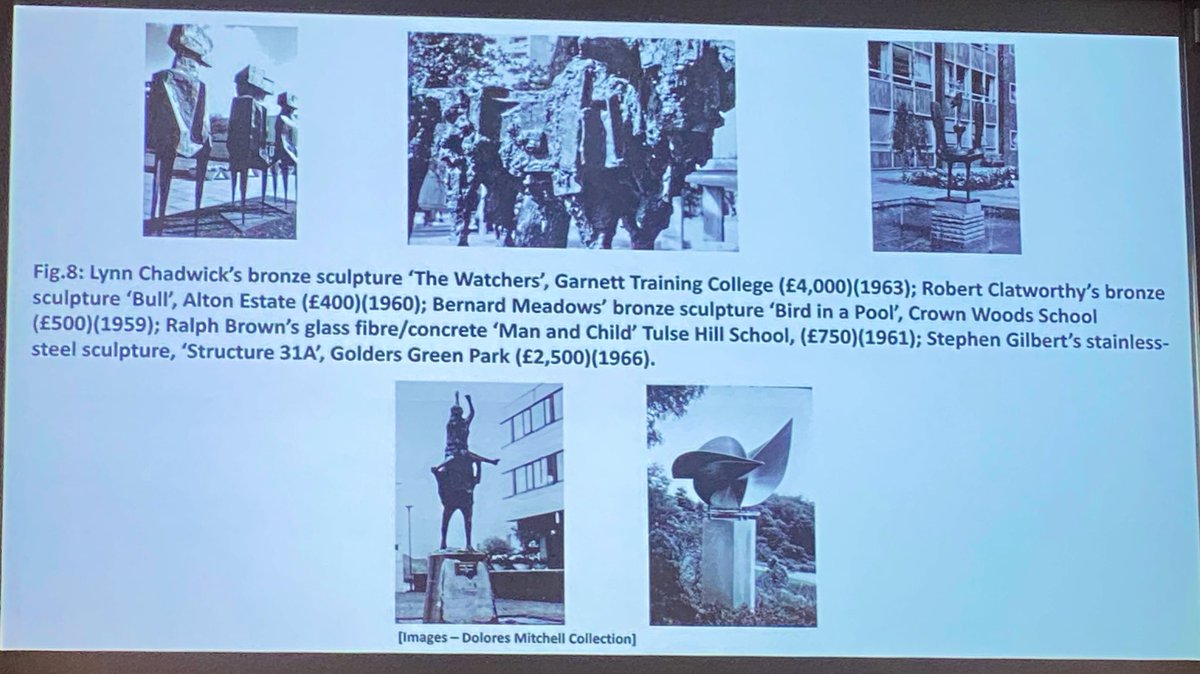

A lesser known scene of 1950s/early 60s was a housing estates patronage scheme with 35 estates across London involved. 







Many greatly loved but some of the more avant garde were vandalised & weren’t kept in good repair. Some of the less accessible works & mosaics in a better condition. 





Sculpture in the public realm - survives best when it is robust & doesn’t need a lot of conservation. Some sculptors understood this best like William Mitchell. 







We continue to engage with past sculpture but need to continue thinking about production & engagement with public art in new ways. Including new commissions. Questions from the audience about the future of investment/commissioning of public art.
The next session kicks off with Richard Upton of Are You? On Heritage, Art & an Immediate Start. Importance of artist & developer led change in this space. Incorporating regeneration & design. “Heritage is the key to authentic placemaking”. Eg Manchester Piccadilly Station 







“Public Art is life enhancing”. Pressure from LAs to cut public art from devpt schemes due to budget pressures. Keep people in spaces so they can engage even transiently - community-informed intelligent public art “should be as common as a phone box on every other street.” 





Next up @kirstendun on public art in dialogue. Who decides (and how were decisions made in the past?) Good public art should be in the realm of inspiring ideas. 4th Plinth a great opportunity. Brief exceptionally wide. Everyone has an opinion on it. Shortlisted proposals tested. 







Not only about good art but also a good process. Public campaign and in the realm of the possible e.g. Fawcett statue in Parliament Square. Sculpture transforms how we read parliament Square & realm around it. It creates a tension & inspires a response (always flowers there) 

We are jolted into action & reaction. Images at eye level & can be engaged with. 4th plinth schools award. Inspiring people to be critical in their environment. Who is going to ensure this happens & the most is made of public spaces. With great power comes great responsibility… 



A new approach to art commissioning. Eg outside @LDN_Museum Docklands - community engagement, satellite sites etc… 

@LDN_Museum Next George Kekatos @futurecityblog on What Makes a Place? We have seen a paradigm shift. High streets & commerce are changing. We need to respond with the big ideas. Community focused creativity. Genuinely listen and create things for them. Improving lives. Cultural Placemaking. 







Governing without walls. What makes a place? Using public art as a tool to respond to the character of place. Beacons of change, welcome. Public art in stations & airports… 







Idea of serenity on the bustle. Characterising space. Unpacking heritage of place through the creative commissions. Eg City changing character from banking to cultural destination. Partnerships, evidence based vision. Business models that enable cultural infrastructure. 







Finally Lisa Anderson of @bcaheritage on public art as a tool for social justice - how can those with commissioning power help to reimagine public art? Weaving cultural memory into the fabric of everyday life. Turning a routine shopping trip into an encounter with history. 







Claudia Jones statue alongside ‘Still we Strive’. Public art activating opportunity. Young people see both opportunity & their heritage reflected back. Community involvement crucial. Lived experience alongside artistic. When communities share public art they see themselves. 




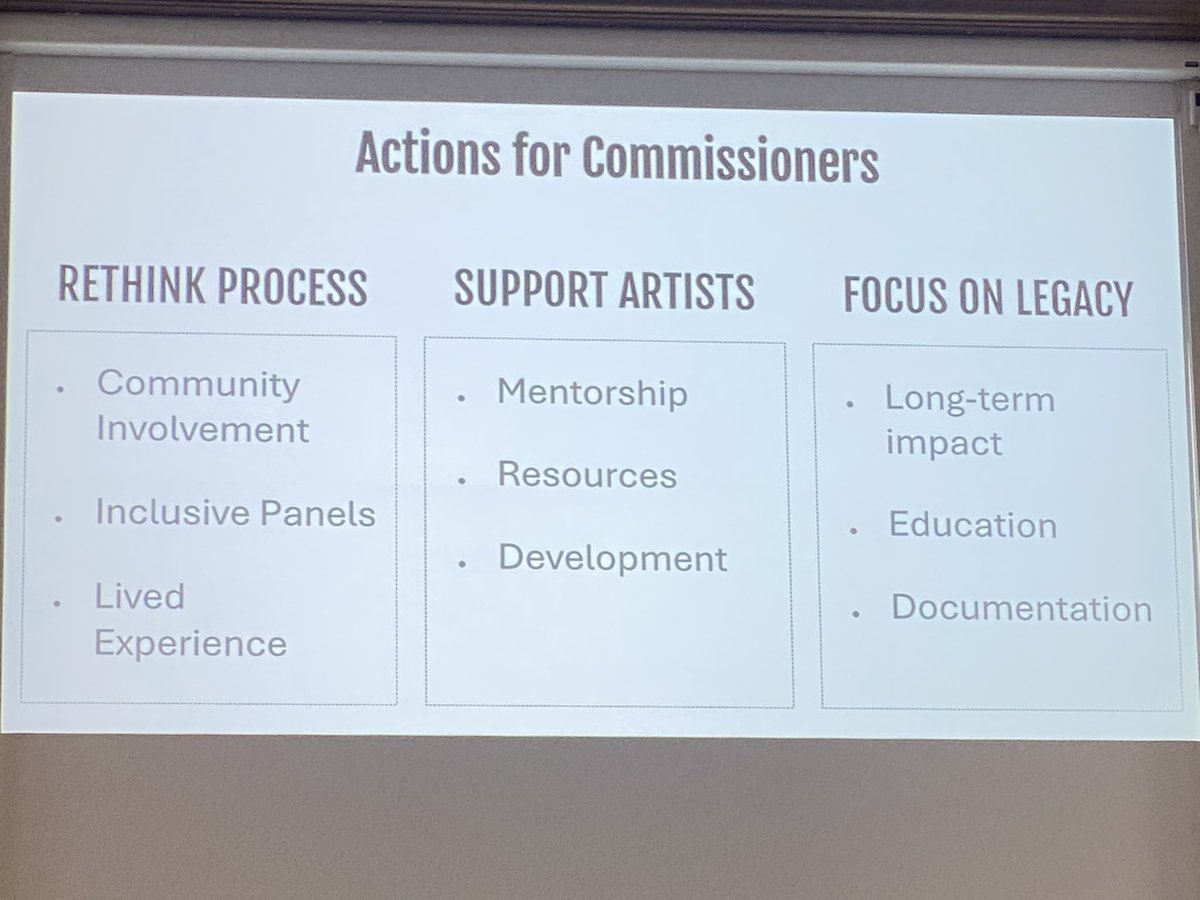
This afternoon kicks off with a conversation with artists. We are hearing from Hew Locke OBE RA - his work includes the Magna Carta piece The Jurors at @RunnymedeNT 



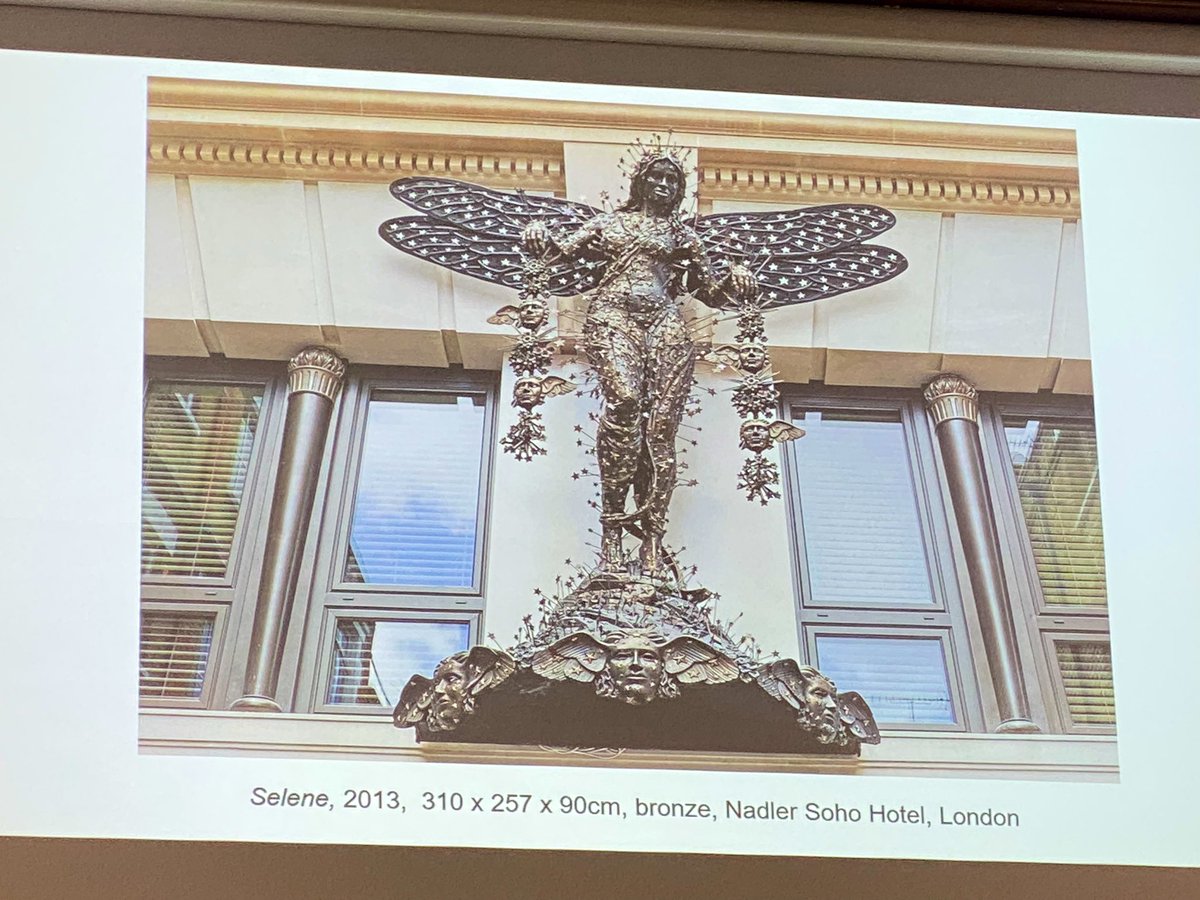



@RunnymedeNT Second is Anya Gallaccio. She’s developing the first HIV memorial. Work in Brussels for children in a school - kids v involved through a mediation project where the artist is chosen. 





Environmental projects including one at @THEhaddonhall where the signature is embedded in the landscape - only seen from above. 





There is often public or press discussion around public art. You can create what you like with more private art but public art you are ‘imposing on people’ says Hew. Complexities around engagement, safety etc… 
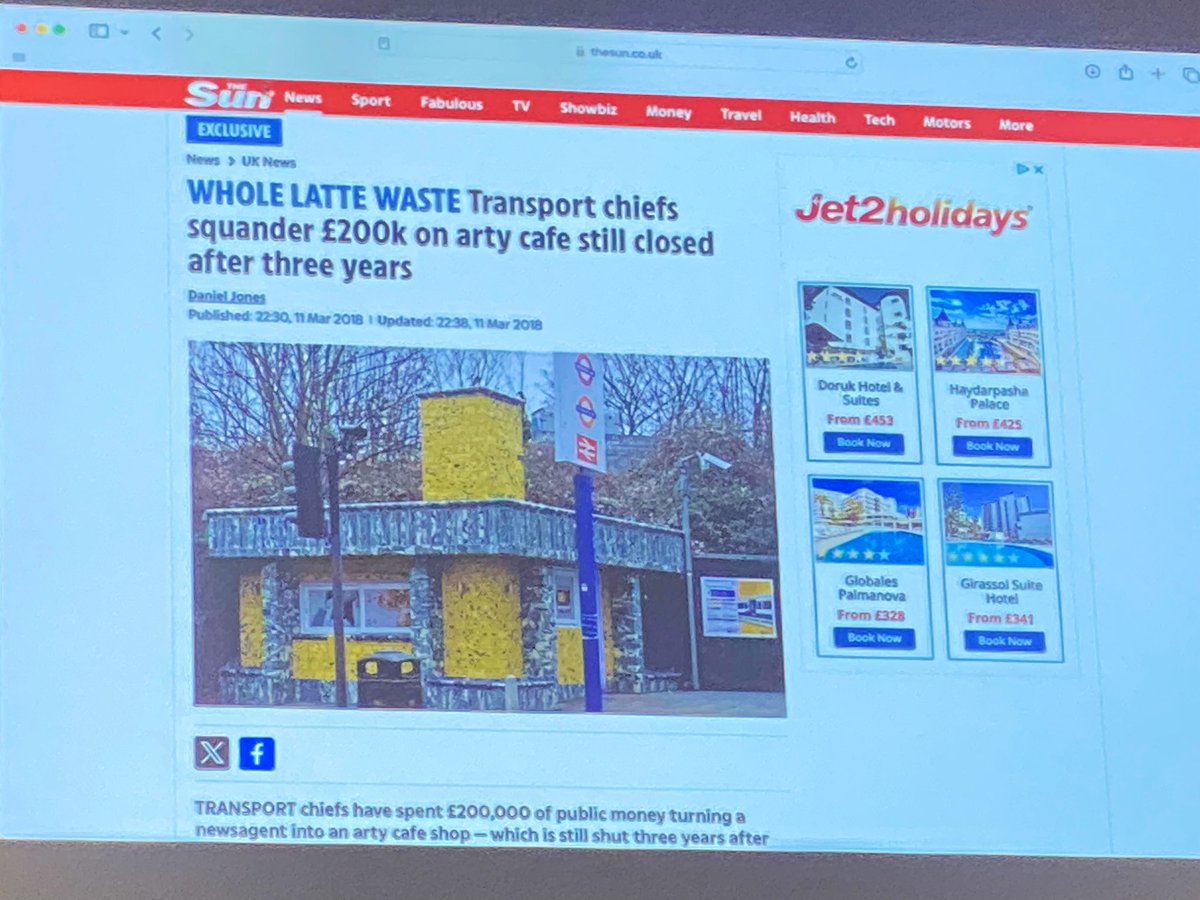
The idea of temporary vs permanent, & where a temporary memory changes ideas about a place permanently. 

Having to head off before the final session but what a scrumptious conference bag @HOLTofLondon & looking forward to reading Thomas Heatherwick’s book. Thanks for a fascinating day. 

@HOLTofLondon @threadreaderapp unroll
• • •
Missing some Tweet in this thread? You can try to
force a refresh








